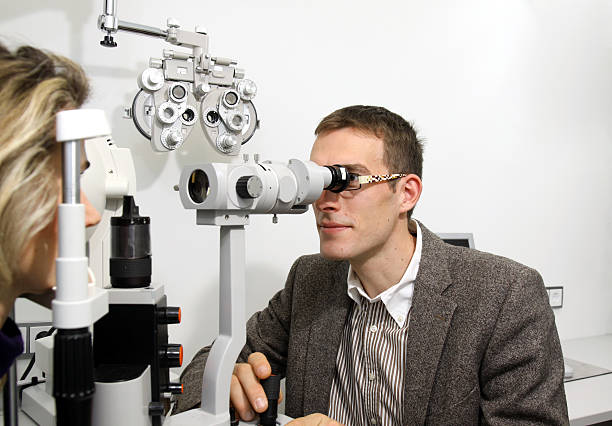Good vision is crucial for living a fulfilling life, yet many of us take it for granted. Our eyes allow us to navigate the world, connect with others, and enjoy life’s everyday moments, from reading a book to admiring a beautiful sunset. However, modern lifestyles—marked by excessive screen time, exposure to harmful UV rays, and poor dietary choices—can put significant strain on our eyes.
Over time, neglecting eye health can lead to serious conditions like glaucoma, cataracts, and macular degeneration, which can impact vision and overall quality of life. The good news is that protecting your eyesight doesn’t have to be complicated. By incorporating a few simple yet effective habits into your daily routine, you can strengthen and maintain healthy vision for years to come. Here are seven essential habits to keep your eyes in top shape every day.
1. Eat a Vision-Friendly Diet
One of the best ways to protect your vision is to nourish your eyes from the inside out. Eating a diet rich in fruits, vegetables, and nutrients is key to maintaining good eye health. Nutrients like vitamins A, C, and E, as well as zinc and omega-3 fatty acids, are especially beneficial for the eyes.
Foods like leafy greens (spinach, kale), carrots, sweet potatoes, and fish like salmon and sardines are great choices. These foods are packed with antioxidants that help protect the eyes from oxidative stress and reduce the risk of age-related vision problems.
2. Wear Sunglasses

While the sun’s warmth can be comforting, its ultraviolet (UV) rays can be harmful to your eyes. UV exposure can increase your risk of cataracts and macular degeneration, which can impair your vision over time. Wearing sunglasses with 100% UV protection every time you go outdoors is essential to protect your eyes from these harmful rays.
When choosing sunglasses, make sure they block 100% of UVA and UVB rays. Polarized lenses are a bonus, as they reduce glare and improve vision clarity.
3. Take Breaks from Screens
In today’s digital world, we spend long hours in front of screens—whether it’s working on a computer, scrolling through a phone, or watching TV. This constant screen time can cause digital eye strain, leading to symptoms like dryness, blurry vision, and headaches. To protect your eyes, it’s important to take regular breaks using the 20-20-20 rule: Every 20 minutes, look at something 20 feet away for at least 20 seconds.
Also, make sure to adjust the brightness of your screen and consider using blue light blocking glasses if you spend extended periods of time on your devices. These small adjustments can help reduce eye strain and protect your vision.
4. Get Regular Eye Exams

Regular eye exams are vital to detect vision problems early and maintain good eye health. Many eye conditions, such as glaucoma, may not show symptoms until later stages, so it’s important to get your eyes checked even if you’re not experiencing any noticeable issues.
Eye exams can help identify potential problems before they become serious, and your eye doctor can recommend treatments to prevent further damage. Depending on your age, health, and family history, you may need to schedule eye exams more frequently.
5. Keep Your Eyes Hydrated
Dry eyes can be uncomfortable and, over time, can lead to more serious issues. Make sure to keep your eyes hydrated by drinking plenty of water throughout the day. In addition to hydration, you may want to use lubricating eye drops if you experience dryness, especially in dry or air-conditioned environments.
Avoid rubbing your eyes, as this can cause irritation and lead to further dryness. If you wear contact lenses, ensure they are kept clean and hydrated to prevent discomfort and reduce the risk of infection.
6. Practice Good Hygiene
Keeping your eyes clean and free from infection is an essential part of eye health. Wash your hands regularly and avoid touching your eyes with dirty hands. If you wear makeup, make sure to remove it thoroughly before bed. Wearing makeup around the eyes can sometimes lead to infections or irritation, especially if the makeup contains harmful chemicals.
Additionally, if you wear contact lenses, be sure to follow proper cleaning and storage procedures to avoid eye infections. Clean your lenses daily and never share them with others to minimize the risk of contamination.
7. Exercise Regularly

Regular physical activity is not only good for your overall health, but it can also help protect your eyes. Exercise improves blood circulation, which helps maintain healthy eye function. Regular movement can lower your risk of conditions like diabetes and high blood pressure, both of which can negatively impact your vision over time.
Aim for at least 30 minutes of moderate exercise most days of the week. Activities like walking, swimming, cycling, or yoga can help keep your eyes—and the rest of your body—healthy.
Final Thoughts
Protecting your vision doesn’t have to be complicated. By incorporating these seven simple habits into your daily routine, you can safeguard your eyes for years to come. Start by eating nutrient-rich foods, wearing sunglasses, and taking regular breaks from screens. Regular eye exams, hydration, good hygiene, and exercise are all essential to maintain healthy vision.
Taking small steps each day can have a big impact on your long-term eye health. Make these habits part of your lifestyle, and you’ll enjoy better vision for years to come.
By following these tips and adopting these habits, you’ll be doing your eyes a favor. Healthy vision allows you to continue enjoying the beauty of the world around you, and it’s never too early to start taking care of your eyes. Keep your vision strong, and take action today!

